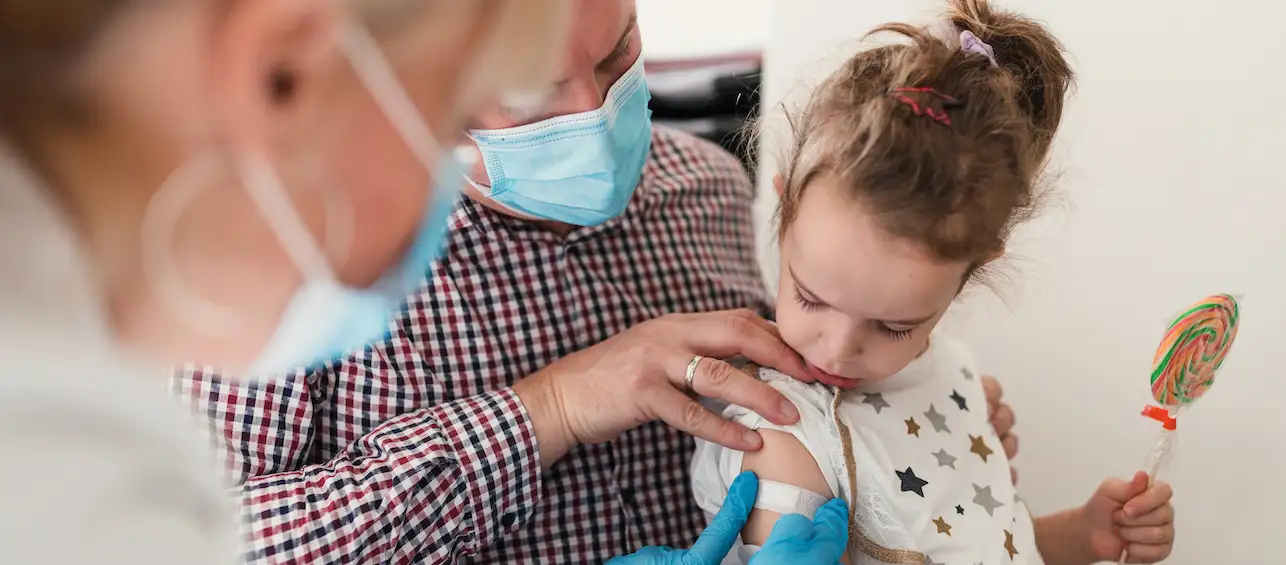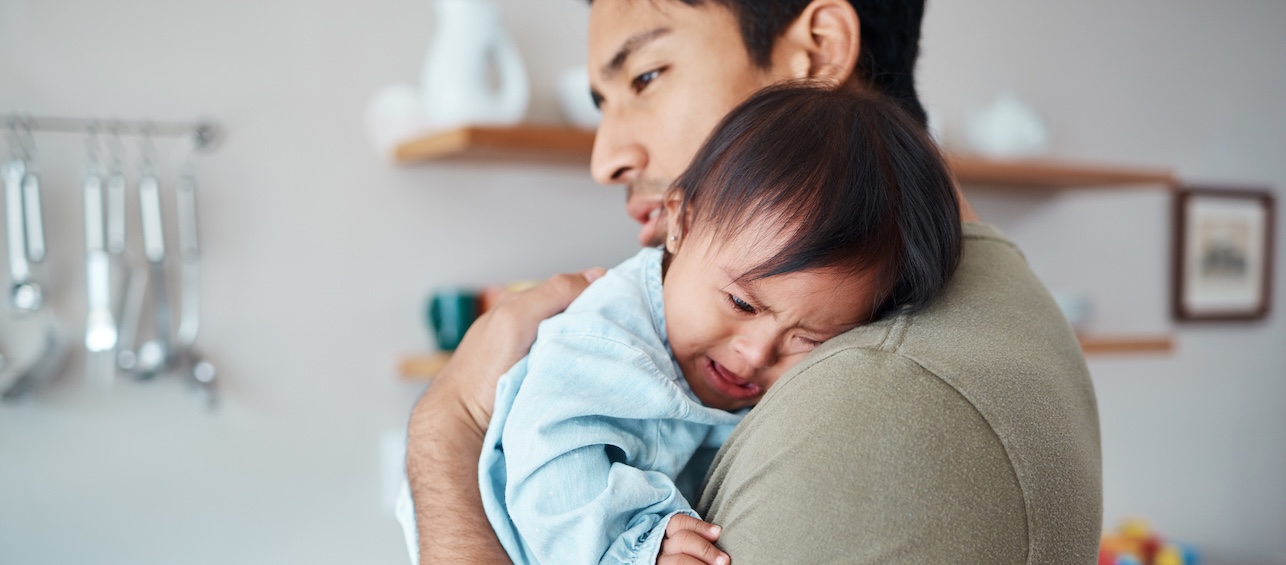It’s fall, which means it’s time for respiratory viral illnesses to start circulating again as part of our “cough and cold” season. This year is no exception – we’ve started seeing an uptick in positive tests for COVID-19, flu (also known as influenza) and respiratory syncytial virus (RSV), both nationally and locally. With multiple illnesses going around and updated/new vaccines available, there’s a lot for parents to know.
To help parents sort it all out, I’ve answered the most frequently asked questions we’ve been receiving about COVID-19, flu and RSV:
1. What is the most effective thing parents can do to protect their kids from these serious illnesses?
The most effective thing parents can do, in addition to handwashing and avoiding sick people, is to vaccinate their children against these illnesses. For the first time ever, we have vaccinations or other preventative treatments available for all three. It’s pretty exciting. It’s important to note, however, that vaccinations do not completely prevent all kids from getting infected and/or having symptoms; it prevents them from having severe disease and potentially being hospitalized.
2. Updated COVID vaccines that more closely match the current strains were recently made available — should I get my kids another one?
Yes! The updated COVID-19 vaccines protect against the more recent omicron variants, such as the XBB lineage, and the Centers for Disease Control and Prevention recommends that everyone aged five years and older get at least one dose of this updated Pfizer or Moderna COVID-19 vaccine to protect against serious illness.
People (including children) who are moderately or severely immunocompromised may get additional doses of the updated COVID-19 vaccine. Children aged six months to four years need multiple doses of the COVID-19 vaccines to be up to date if they have not been vaccinated before, including at least one dose of the updated COVID-19 vaccine.
3. Should we be pacing our COVID-19 vaccine schedule similarly to the flu vaccine — yearly, around September/October?
Ideally, yes, it would be great to get them both at the same time of year to make it easier for families. However, because COVID-19 has been unpredictable, I can’t say that for certain. Right now, it’s best to follow what’s happening in the news and pay attention to what the CDC is recommending — until (hopefully) COVID-19 becomes a bit more predictable like the flu.
4. Is it okay for my kids to get the COVID-19 and flu vaccines at the same time?
Yes! It is safe to receive the COVID and flu vaccines at the same time. Based on current data, there is no increased safety risk and no decrease in immune response if they are administered together.
5. Is this year’s flu vaccine a good match for the current strains that are circulating?
Influenza can cause severe disease requiring hospitalization and death in even healthy children, especially those less than five years old. It is looking like this year’s flu vaccine is a relatively good match based on the data from the flu season in the southern hemisphere. Remember that getting a flu vaccine can prevent against serious illness if your child becomes infected with the flu.
6. Who should be getting the new RSV vaccine?
Healthy infants less than eight months of age should receive nirsevimab, which was recently approved by the FDA. While not technically a vaccine — it is a monoclonal antibody — nirsevimab is being used similarly to how we think of preventive vaccines. It is recommended to get it around September, before the RSV season, and protection should last about five months. Children who are severely immunocompromised or have severe lung disease may receive an additional dose in their second RSV season. We have had other RSV antibodies available before; however, only high-risk infants were eligible. This is the first time we’ve had an antibody available for all babies under eight months of age; studies show it reduces the risk of severe illness by 75%.
7. When is the RSV season?
The typical RSV season is similar to the flu, with the most cases happening in the winter and early spring. Influenza season starts in the fall and usually peaks in the winter. That said, we saw a high volume of RSV and influenza cases in the off-season, such as the summer of 2021 and the fall of 2022. Some indications suggest it will be starting early this fall as well.







Is there somewhere that offers the Covid vaccine for infants? Many of us cannot seem to find a location that offers it. Thanks
Hi Rupi. Thanks for the question. The best place to get a COVID vaccine for your children is at your pediatrician’s office. If you do not yet have a pediatrician, contact our Pediatric Primary Care Center at 513-636-7722, option 1.